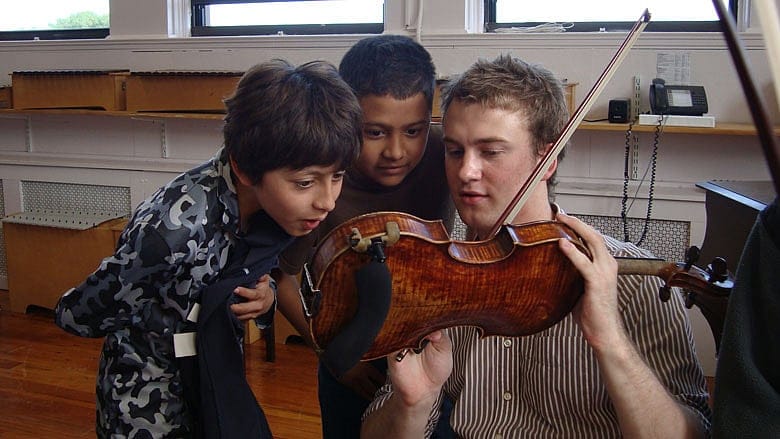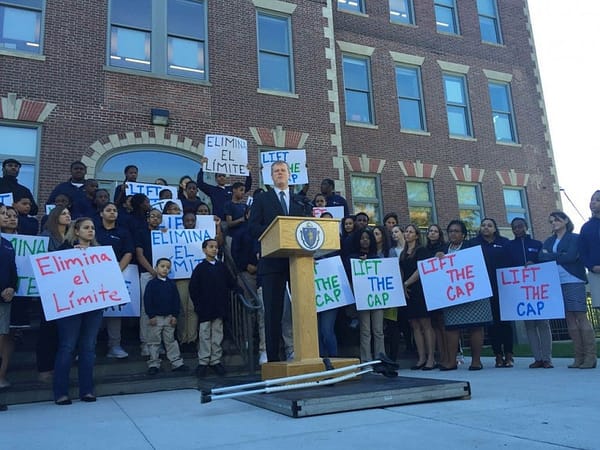Conservatory spearheads musical outreach

The New England Conservatory is at the forefront of cultural renewal in Boston's urban neighborhoods. Through their Community Performances & Partnerships Program, musicians offer free concerts at homeless shelters, public schools, hospitals, rehabilitative facilities, community centers, and other diverse venues.
Created in 2003 to bring classical music to underserved constituencies, CPP students perform and teach at over 125 sites around the city. Last year alone, the NEC program served over 11,000 people, including 6,000 youths.

